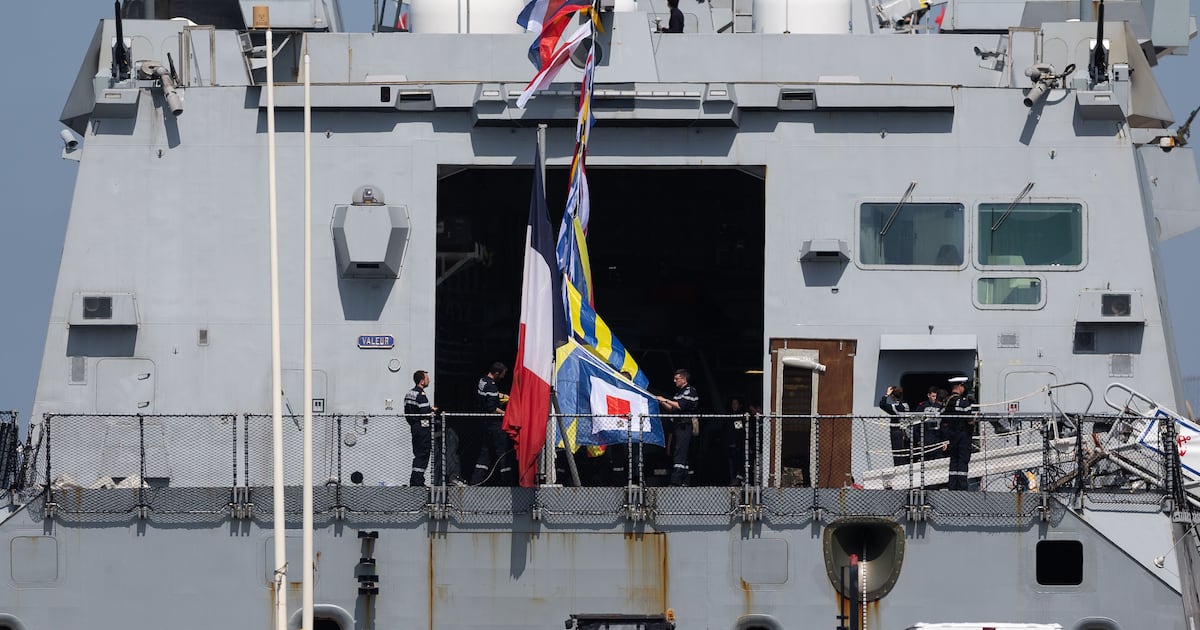Ireland is considering asking larger EU nations for security assistance during its forthcoming EU presidency, including sending a warship to Dublin for air defence.
One such ship, the French frigate Bretagne, will dock in Dublin this month on a courtesy visit. It is equipped with anti-aircraft missiles.
Heads of state and ministers from across Europe will be attending more than 20 top-level meetings in Ireland next year amid an increasingly tense security climate, with illegal drone activity reported during the recent Danish presidency.
As part of security preparations, the Government has already decided to fast-track the purchase of a multimillion euro counter-drone system.
Other measures being taken by security services are the acquisition of short-range anti-drone weapons by gardaí. Officers are liaising with Dutch police over the use of such devices.
Gardaí have also deployed a team to EU headquarters in Brussels to liaise on security matters, while other Irish officers have visited Copenhagen to inspect their security measures.
Tánaiste and Minister for Defence Simon Harris is understood to have authorised officials to seek urgent delivery of a system to track and intercept drones.
It is understood that under current plans a single counter unmanned aerial battery would be deployed to the airbase at Baldonnel in west Dublin.
The system would be aimed at protecting the airspace around the military airport to allow ministers and heads of state to land safely in Dublin to attend events during Ireland’s presidency of the European Union (EU), which commences in July.
The counter unmanned aerial system will form part of a larger military radar project the Government is set to purchase.
In light of disruption caused by drones at airports and other facilities in Europe, security will be a crucial issue for the Government in the run-up to the presidency.
During the recent Danish presidency, France and Germany sent counter-drone teams, including a German anti-aircraft ship, to Copenhagen in response to increased illegal drone activity, which Denmark attributed to Russian actors.
Mr Harris told the Dáil on Thursday that planning and preparations for the Irish presidency of the EU are well under way.
“The phased early delivery of elements of the military radar programme in 2026 may form part of these preparations,” he said.
“A key focus, and a key early focus of the programme, should be our counter unmanned aerial system capability. We have a structure in place to keep the Oireachtas committee up to date and we will do that in a sensitive and appropriate way.”
The cost of the overall military radar project is expected to run to several hundred million euro.
Mr Harris secured €1.7 billion in funding for defence under the revised National Development Plan agreed by the Government in the summer.
The defence sector will receive capital funding of €300 million next year under the revised National Development Plan.
Overall, Ireland’s presidency of the EU is expected to cost several hundred million euro.
It is understood the Government has set a budget of between €165 million and €185 million. In addition, a further €15 million will be provided for planned meetings of the European Political Community, which will involve up to 47 heads of state travelling to Dublin.
However, these figures do not include security costs.
There is also an expectation in Government that the Department of Justice will seek substantial funds for Garda overtime during the six-month presidency.

